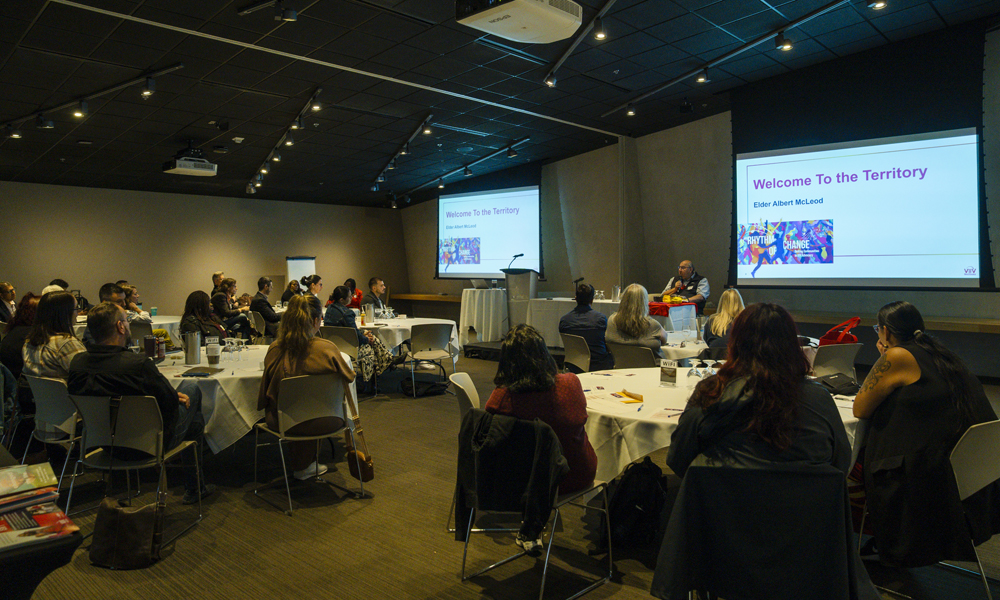Inside the fight for equity — and how Winnipeg’s CIN and Nine Circles Community Health Centre are turning advocacy into action…
Across Manitoba, the numbers tell a story that demands attention. HIV incidence rates in the province are now more than 3 times higher than the national average, making Manitoba a focal point in Canada’s ongoing HIV response. It’s a situation shaped not only by viral transmission, but by systemic inequities – and by the persistence of social, economic and racial barriers that have allowed a public-health crisis to deepen quietly in plain sight.
Behind the statistics are communities facing overlapping challenges: poverty, stigma, substance use, and the lingering legacy of colonialism that continues to affect Indigenous health outcomes. While the rest of Canada has seen gradual progress, Manitoba’s rates are rising. That reality has become a rallying cry for a network of advocates determined to change the narrative.
A province confronting inequity
While sexual contact remains the leading cause of HIV transmission across Canada, Manitoba’s epidemic looks markedly different. Here, injection drug use is the primary driver: a reflection of how inequitable access to health care, harm-reduction tools, and prevention education has left certain communities disproportionately vulnerable.
According to Mike Payne, Executive Director of Nine Circles Community Health Centre and co-strategic facilitator for the CIN (Collective Impact Network), health disparities are the true engine behind the province’s growing HIV rates. Factors such as a lack of awareness of HIV risk, limited access to PrEP and PEP, structural racism, and stigma have all contributed to the alarming rise in new diagnoses.
Payne notes that HIV is significantly impacting First Nations and Indigenous people and communities in Manitoba – an outcome that Nine Circles believes is a direct result of long-standing structural racism.
“Nine Circles and its broad community partners have established a clear provincial HIV strategy,” Payne tells IN Magazine, “and our advocacy efforts push our community, regional, provincial and federal leadership to acknowledge, co-lead and accept shared accountability with the community to raise awareness of HIV and opportunities for prevention, to reduce stigma around HIV, sexual health, substance use, mental health and homelessness, and to take direct action to address the underlying causes.”
Building a network for change
Amid these challenges, the CIN has emerged as one of Manitoba’s most forward-thinking advocacy coalitions. Co-led by people with lived experience and guided by collaboration among service providers, researchers and health-system leaders, the network aims to bridge the gaps between policy, practice and lived reality.
“We have been at the forefront of bringing new community-led research and innovation,” says Payne. “Our advocacy struggle is gaining regional, provincial and federal commitments to sustain innovations beyond the pilot or research stage. We work to evolve new ways of working together for collective impact.”
The CIN was born from a recognition that Manitoba needed a more coordinated strategy: one that treated HIV not just as a medical issue, but as a social and structural challenge requiring partnership at every level. Through advocacy, consultation and research, the network has been pushing for long-term solutions rather than temporary or project-based fixes.
Payne emphasizes that there are unique challenges in different communities across Manitoba, and distinct solutions to those challenges are required at the regional and community levels – solutions that take time, skill and resources to build.
From advocacy to action: The example of Nine Circles
At the centre of the CIN’s work stands community organizations like Nine Circles Community Health Centre, a Winnipeg institution that exemplifies what the Network is striving for province-wide. Since its founding, Nine Circles has redefined what community-rooted, inclusive care can look like. It integrates clinical services, harm reduction, education and social support into a seamless model that treats health not as a transaction, but as a relationship.
“Nine Circles envisions a future where all Manitobans who live with, or are vulnerable to, HIV and other STBBIs [sexually transmitted and blood-borne infections], receive equitable health and social services that fully meet their needs,” says Payne.
The centre’s philosophy is grounded in compassion and non-judgmental care. Its clinicians work in partnership with clients, addressing the social conditions that make treatment adherence difficult – whether that’s unstable housing, food insecurity or trauma.
Harm reduction as health justice
Nowhere is Nine Circles’ impact more visible than in its Pit Stop program, which offers safer drug-use and safer-sex supplies, take-home naloxone kits, a needle exchange and drug-checking services. The goal isn’t just to prevent HIV infection resulting from shared needles or overdose; it’s to affirm that every person deserves dignity and safety, regardless of circumstance.
By reducing harm and removing barriers to care, Nine Circles saves lives while building trust with populations that have often been pushed to the margins of the health system. It’s a tangible expression of what Payne and the CIN describe as an evolving model of “collective impact” – one that combines health care, advocacy and community empowerment.
But the work doesn’t stop at direct services. Nine Circles also acts as a hub for education and community connection, offering workshops, peer-support spaces and opportunities for leadership development. Through these efforts, people with lived experience are empowered not only as clients, but as advocates and educators.
The road ahead
The path forward will require continued advocacy, collaboration and sustained funding. While Manitoba’s community sector has been innovative, it cannot sustain progress without stable policy support and investment. Advocates are calling for an integrated provincial HIV strategy that unites health regions, Indigenous leadership, and community organizations under a shared framework of accountability.
That framework would prioritize harm reduction, prevention, testing access and culturally appropriate care – but just as importantly, it would prioritize people with lived experience as equal partners.
Across Manitoba, organizations like Nine Circles and networks like CIN are demonstrating that community-led innovation can lead the way. What they need now is consistent commitment from decision makers to maintain the momentum.
A blueprint for change
As the landscape of HIV care evolves, Manitoba offers a powerful case study in what’s possible when communities lead with compassion and courage. The CIN’s collaborative advocacy is reframing what public health can look like – less about bureaucracy and more about partnership.
And at the heart of it all, Nine Circles Community Health Centre remains a living testament to those ideals. It’s where the policy meets the person, where advocacy becomes action, and where care extends far beyond the clinic walls.
For the thousands of Manitobans living with or at risk of HIV, that kind of holistic, inclusive and justice-driven care isn’t just life-changing – it’s lifesaving.
For more information on Manitoba HIV/STBBI Collective Impact Network, visit www.cinetwork.ca. For more information on Winnipeg’s Nine Circles Community Health Centre, visit www.ninecircles.ca. For more information on the Manitoba HIV Program, visit www.mbhiv.ca.
ViiV Healthcare Canada supports the HIV/AIDS community through various initiatives across the country, including the evolving needs of Nine Circles. To learn more about ViiV Healthcare Canada, visit www.viivhealthcare.ca.
This content is sponsored by ViiV Healthcare Canada.







POST A COMMENT